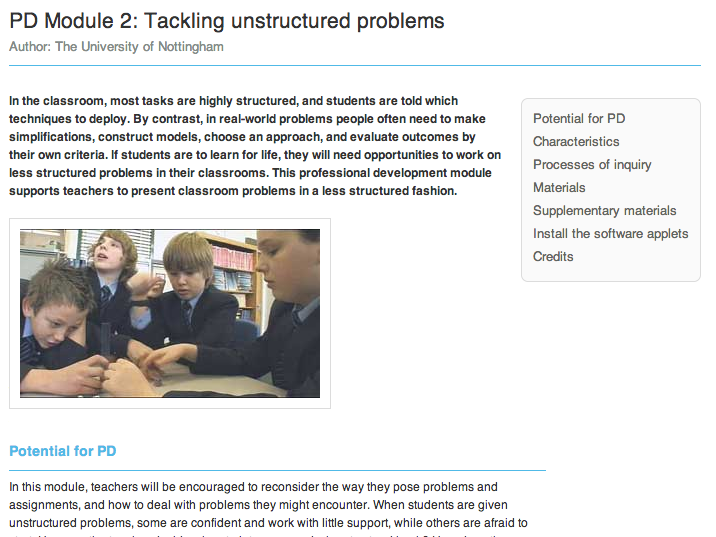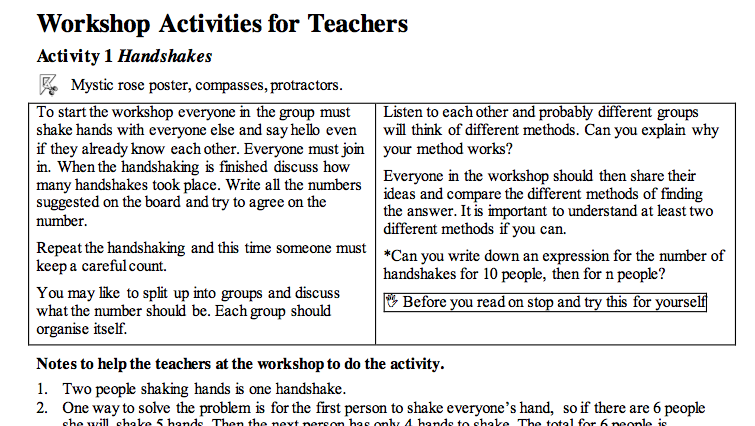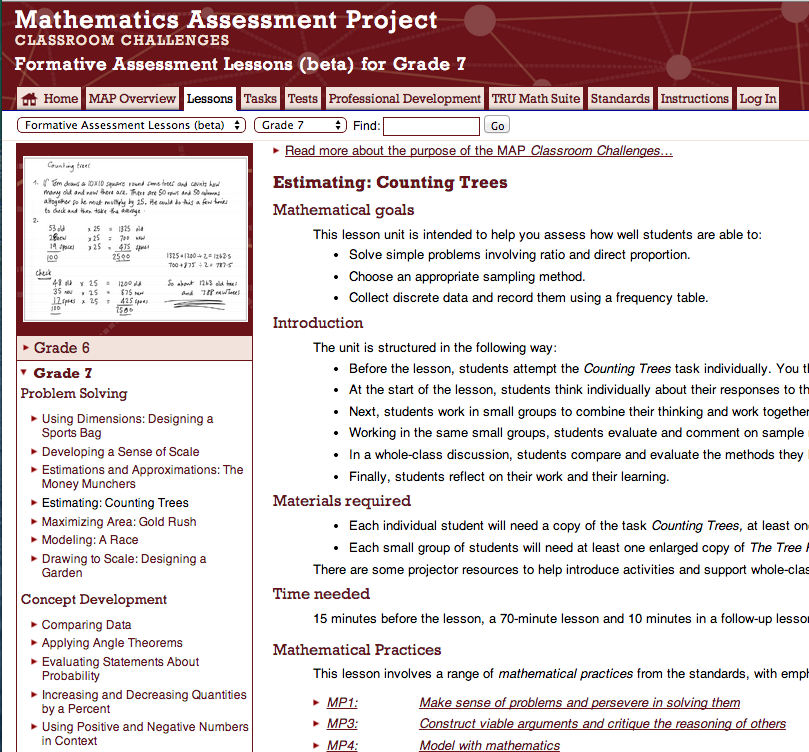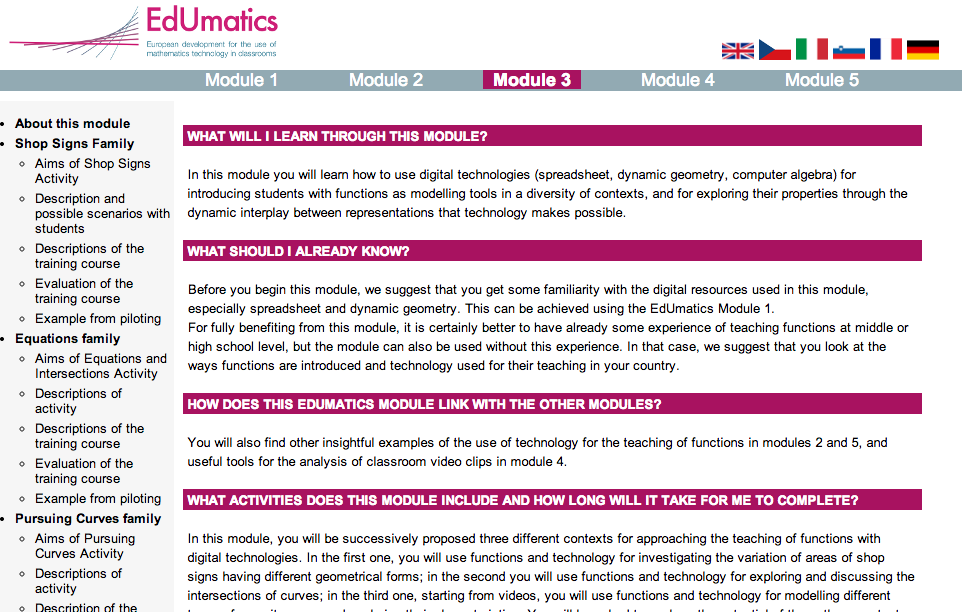The page “Examples of toolkits” provided some examples of resources for teachers that are labelled as toolkits.
However, there are many other sets of resources which fulfil similar roles. Some of these are described on this page.
 Partners from Nottingham University in the UK and HiST in Norway were involved in the EU-funded project Primas. The overarching aim of Primas was to “effect change across Europe in the teaching and learning of mathematics and science by supporting teachers to develop inquiry-based learning pedagogies” and it produced teaching materials, professional development courses for teachers, support for teachers and support for professional development facilitators. The last of these is described by Primas as a set of modules, each of which“includes a CPD session guide and handouts for teachers, as well as sample classroom materials and suggested lesson plans.” Within professional development, some or all the modules can be used, and in any order. Within professional development, some or all the modules can be used, and in any order.
Partners from Nottingham University in the UK and HiST in Norway were involved in the EU-funded project Primas. The overarching aim of Primas was to “effect change across Europe in the teaching and learning of mathematics and science by supporting teachers to develop inquiry-based learning pedagogies” and it produced teaching materials, professional development courses for teachers, support for teachers and support for professional development facilitators. The last of these is described by Primas as a set of modules, each of which“includes a CPD session guide and handouts for teachers, as well as sample classroom materials and suggested lesson plans.” Within professional development, some or all the modules can be used, and in any order. Within professional development, some or all the modules can be used, and in any order.
 AIMSSEC in South Africa is producing a set of resources aimed at supporting teachers in running professional development workshops. Although they have been developed to support teachers on the AIMSSEC courses, they will also be published for wider use. Each chapter is a six-page pdf document which includes a summary sheet, workshop activities for teachers, classroom activities for learners and key questions (which could be about the mathematics or extension questions for learners). The units are all stand-alone and can be used in any order.
AIMSSEC in South Africa is producing a set of resources aimed at supporting teachers in running professional development workshops. Although they have been developed to support teachers on the AIMSSEC courses, they will also be published for wider use. Each chapter is a six-page pdf document which includes a summary sheet, workshop activities for teachers, classroom activities for learners and key questions (which could be about the mathematics or extension questions for learners). The units are all stand-alone and can be used in any order.
The Edumatics project involved the Freudenthal Insititute, Università di Torino Ecole Normale Supérieure de Lyon and PH Freiburg. The project produced five professional development modules, related to integrating technology into the classroom. The modules “offer a range of tasks and activities for both trainee and experienced teachers. These modules are also suitable for adaptation within professional development and teacher training courses.” It is suggested module 1 is attempted first, but other than that the modules are stand-alone and can be taken in any order.
 Nottingham University devised and created over 100 ‘Formative Assessment Lessons’ within MAP (mathematics assessment project). These lessons, written for an American audience and closely linked to the US Common Core State Standards, include classroom tasks for students plus any resources students might need such as card sets, PowerPoint presentations for teachers to use and extensive guidance for teachers. Each set of resources has been trialled in US classrooms and modified in the light of feedback from teachers and observers.
Nottingham University devised and created over 100 ‘Formative Assessment Lessons’ within MAP (mathematics assessment project). These lessons, written for an American audience and closely linked to the US Common Core State Standards, include classroom tasks for students plus any resources students might need such as card sets, PowerPoint presentations for teachers to use and extensive guidance for teachers. Each set of resources has been trialled in US classrooms and modified in the light of feedback from teachers and observers.
